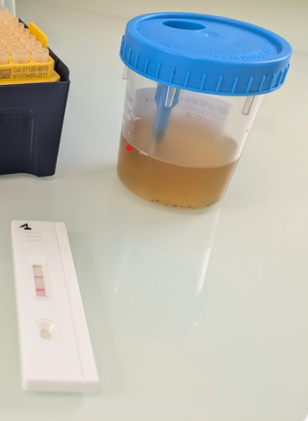UriFastBK
DIAGNOSTIC DESCRIPTION
General information
Nowadays, BK virus reactivation in kidney transplant patients is monitored by PCR, either in urine or blood. This time-consuming method requires dedicated infrastructures and human resources. In transplant centers, this analysis is carried out in series, delaying patient management in the event of reactivation. Over the high cost of this methods, a large number of results are negative. The aim of SPyDiag is to simplify and increase the frequency of diagnosis, in order to detect BK virus replication at an early stage, and to act as quickly as possible on its clinical management.

Benefits
In the absence of an antigenic diagnostic test, SPyDiag aims to simplify and increase the frequency of diagnosis in kidney transplant patients. Unlike PCR, the patient receives a direct result of BK virus replication status in the urine, enabling healthcare staff to start immunomodulation directly if necessary. There are therefore four benefits: savings for the healthcare system, better care and living conditions for the patient, and reduced risk of kidney transplant rejection.
Our approach
UriFastBK uses a patented antibody capable of recognizing all BK virus genotypes. The antibody directed against the VP1 protein of the BK polyomavirus is used to capture and detect particles present in urine in a simple-to-use lateral flow test.
